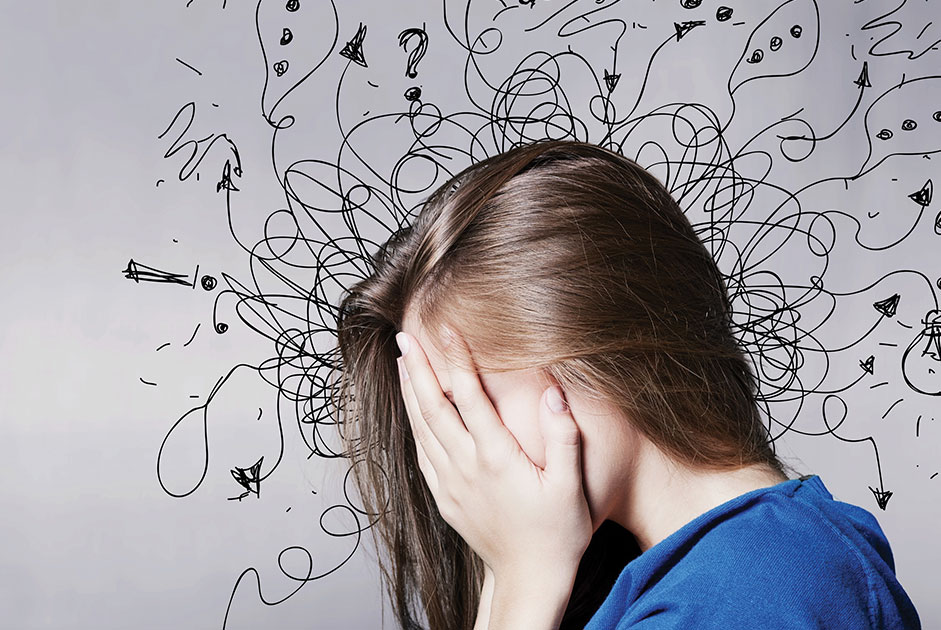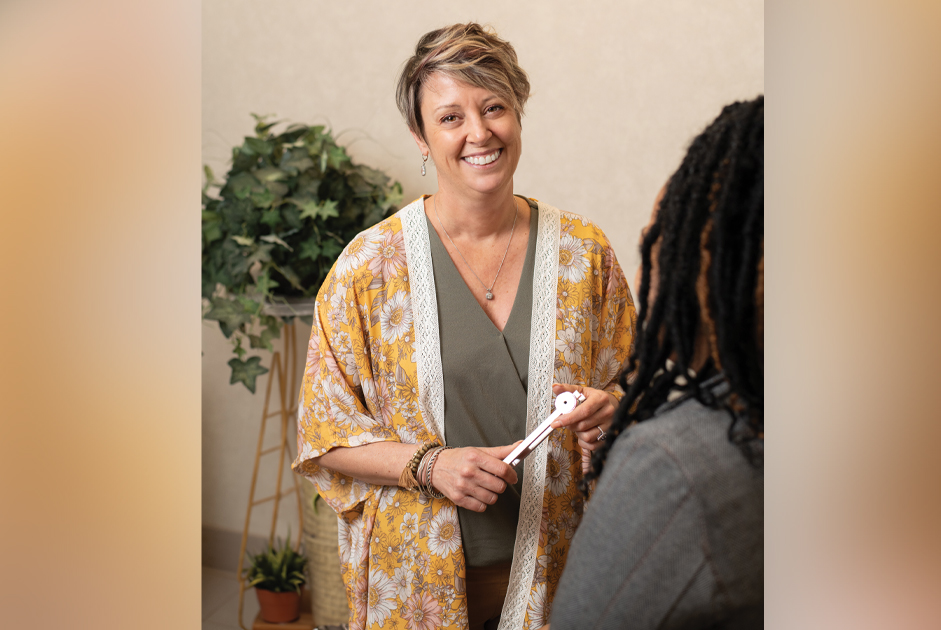BY MEGAN TAYLOR
According to the Anxiety and Depression Association of America (ADAA), anxiety disorders affect 40 million adults in the United States and are the most common mental illnesses. These disorders can prevent a person from living their normal life due to a continual feeling of worry, fear, nervousness, and being overwhelmed. Well-known anxiety disorders include panic disorder, social anxiety disorder, phobias, and general anxiety. Researchers are still investigating what causes anxiety in a person, but have discovered it can be a combination of changes in a person’s brain, stress, and genes.
The good news is that all of these disorders are highly treatable, and people can get back to living normally by learning techniques to manage their feelings. However, these illnesses often go undiagnosed, with the ADAA stating that only 37% of the people with anxiety get treatment. This can be because some signs can be overlooked or thought of as something else.
The most common signs or symptoms of anxiety are:
- Sense of panic or a feeling of being nervous or irritable
- Fear of the unknown
- Having an increased heart rate or heart palpations
- Breathing rapidly and/or sweating
- Feeling weak or tired
- Shortness of breath
- Tense muscles
- Difficulty concentrating
- Having trouble sleeping
- Gastrointestinal problems
- Headaches
These symptoms are also the most familiar to people. It is important to note a person with the disorder doesn’t have to have all of these signs. Yet, anxiety towards a situation, worry, etc., can manifest itself in other unnoticeable habits, such as the following:
- Overreactions to stressors of all sizes. No matter the size of the issue, problem, or situation, anxiety can magnify it. Maybe you heard about a worrisome event on the news and prepare yourself for a potential impact, even though the chances of the event reaching you are small.
- Difficulty relaxing or concentrating. When a person has anxiety, their brain jumps all over the place, thinking of what needs to be done and possible problems that could arise. A person could also have trouble relaxing when a problem continues to weigh on their mind, causing anxiety symptoms to appear.
- Negative self-talk and irrational thinking. It is great to have high expectations for yourself, but give yourself grace and understand it is okay to not be perfect. Anxiety can allow negative thoughts and doubts to creep into a person’s mind and cause them to be hard on themselves. Wanting to be prepared for anything and everything is also common, which can lead to overthinking. A person can easily overthink all the little details, rehearse how scenarios will go in their heads, and more. This can lead to unnecessary stress and an overwhelming sensation of thoughts.
- A yearning to isolate yourself from others and avoid all activities outside of your comfort space. Just the thought of having plans and interacting with others can impact a person so much their body starts to show symptoms. This can be related to the fear of “what could go wrong” or “what will happen.” The fear of the unknown is powerful and very scary. Even a little outing can be so stressful it will cause a person with anxiety to cancel their plans.
If, as you were reading, you recognized some of these signs in yourself, don’t worry! Anxiety can be easily helped through a variety of different activities. Here are a few examples:
- Eat right, get enough sleep, and exercise
- Journaling
- Taking notes of your emotions and senses through the grounding techniques. These techniques allow you to find your footing and recognize your surroundings. The “54321 Technique” is a favorite among many. All you need to do is list things you notice around you. First, list five things you hear, then four things you see, three things you can touch from where you are located, two things you can smell, and one thing you can taste. This will help draw your attention to the details that aren’t related to your worries.
- Be creative
- Get outside
- Meditate or practice yoga
- Cut down on foods and drinks with a high level of caffeine
- Talk with your family and friends about what you are feeling
And don’t be afraid to seek professional assistance. Options include individual counseling, online support, or group meetings. Medications and therapy can also be used to help manage your anxiety. You just need to find what works best in order for you to live a happy and fulfilling life.





















